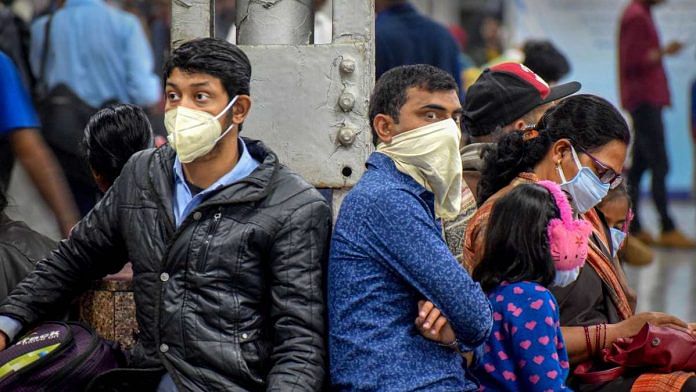One of the noteworthy aspects of our current coronavirus moment is the rapid proliferation of self-appointed data analysts. These armchair epidemiologists seem to believe they can project the trajectory of Covid-19 better than actual epidemiologists who have spent their whole careers studying the spread of disease.
You know who I’m talking about: It’s not just the guy on Medium whose post gets 35 million pageviews. It’s your uncle and your co-worker (funnily enough, many of them are men) who are trying their hand at beating the pros. And of course, it includes our president. Donald Trump has said in his daily press conferences that he’s “a smart guy” who “feel[s] good about” his own predictions and has “been right a lot.”
There are several possible explanations for why so many of us are trying to make our own predictions. What they all have in common is that they are based on conceptual errors. As anyone with any kind of subject matter expertise — whether in construction or constitutional law — knows, there’s a difference between actually knowing what you’re talking about and winging it.
In part, making our own predictions is a coping mechanism. This is, obviously, a time of anxiety about health and economic prospects. And that anxiety is perfectly rational, since things are both bad and uncertain. One way for humans to cope with anxiety is to seek rational mastery over observable phenomena. By using logic, we hope to be able to understand the environment around us.
That experience of using our minds to calm our emotions is perfectly understandable. But it’s a cardinal mistake to believe that, just because we are reasoning, we are reasoning well. When we are thinking in domains about which we individually know very little, we are prone to errors of omission and commission. We ignore facts about the world not because they are inconvenient but because we have no idea what they are.
Another possible reason why so much energy is being expended on amateur epidemiology is that there are no sports on TV. I’m not kidding about this. A huge percentage of the U.S. population spends an inordinate amount of time analyzing sports. We might do it for fun or we might do it for fantasy football leagues or we might do it because we bet money on games. Regardless, sports analysis is a huge industry that takes up a non-trivial amount of our collective mind-share. (Again, disproportionately among men.)
When you take all that away in one fell swoop, the collective intellectual energy usually geared to the amateur analysis of sports must go somewhere. And right now, just about the only place it can land is analyzing coronavirus.
The big problem with using our sports analysis muscles on coronavirus is that our sports analysis isn’t actually very good. There’s just too much uncertainty in sports — which is by design, since if we all knew with a high probability who would win each game, there wouldn’t be much entertainment value in watching. And whether amateur or professional, most who hold forth with great confidence on sports are wrong a lot of the time. In the case of coronavirus, the stakes of error are just too high for this kind of entertaining amateurism.
A third explanation for the outpouring of amateur analysis is the high degree of uncertainty being expressed by the actual experts. Perhaps if public health experts were able and willing to give the rest of us precise numbers in their projections about how and where the disease will spread, then we would be more inclined to listen to them. Instead, the experts are consistently declining to speak with any certainty. We may experience that uncertainty as a license to second-guess them and try to provide the certainty ourselves.
The grave difficulty here is that the experts are refusing to provide certainty for the excellent reason that they don’t have the concrete, empirical data that would let them speak with informed confidence. We don’t yet have anything like adequate testing in the U.S., we still don’t have a clear sense of the true number of people infected, which makes it very difficult to project how many people will end up needing urgent hospital care.
What emerges is a bit of an epistemological disaster: Experts uncertain based on the absence of empirical facts may be triggering in us the impulse to distrust experts which in turn leads us to make even more unreliable judgments under the illusion that we can do it ourselves — even though that we don’t know the empirical facts, either. This way lies madness.
The bottom line is that we should be more modest about our own ability to predict where this is going next. I’m not saying that the experts are always right. I’m saying they’re much more likely to be right than we are.
Epidemiology is a serious science. It’s more than a century old. You may think you can do it just as well as the people who do it for a living. You can’t.
Also read: COVID-19 impact in India: A look at the statistics, the science and the reality



